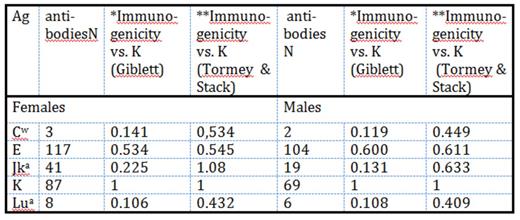Abstract
Transfusion protocols have remained unchanged for decades. Accordingly, it is necessary to avoid transfusion reactions by giving patients ABO- and irregular antibody-compatible red blood cells (RBC). Prevention of immunization to the Rh antigen D is also required since anti-D may cause a serious hemolytic disease of fetus and newborn. Prevention of transfusion-induced immunization to other blood group antigens is neither required nor feasible for the general transfused population.
We consider the process of alloimmunization to be harmful due to the following untoward effects: 1) Destruction of transfused RBC negates transfusion's intended therapeutic benefits and may cause transfusion reactions. 2) Some alloantibodies become undetectable after a relatively short period (e.g., anti-Jka) so that in the future such seemingly compatible transfusions cause severe, sometimes fatal delayed transfusion reactions. 3) RBC autoimmunity may follow alloimmunization and cause hemolytic anemia in the recipient.
To take the first step toward preventing transfusion-induced alloimmunization we calculated, using our antibody database, the immunogenicity of RBC antigens in a predominantly white female and male populations according to the methods of *Giblett (Transfusion 1961;1(4): 233) and **Tormey and Stack. (Blood 2009;114: 4279). The latter method corrects immunogenicities for antibody evanescence. The Table below shows that the three highly immunogenic antigens against which clinically significant antibodies were frequently formed were E, Jka and K, both in females and males. Immunogenicity of Rh C antigen was not calculated, since anti-C occurs most often with anti-D.
In summary, we suggest a first step toward improving immunological safety of RBC transfusions by preventing immunization to E, Jka and K antigens. Automated typing or DNA analysis would facilitate mass typing of both donors' and recipients' RBC antigens.
No relevant conflicts of interest to declare.
Author notes
Asterisk with author names denotes non-ASH members.


